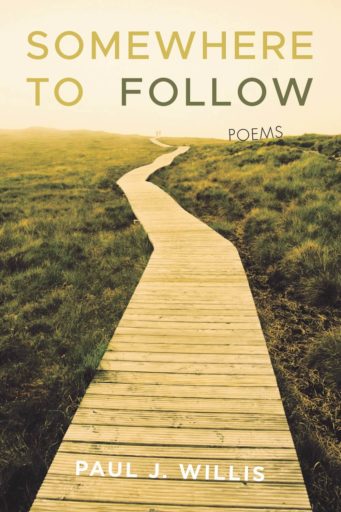

Forty years as a poet has kept Robert Cording looking at the details of everyday experience, at what Richard Wilbur called the “hunks and colors of the world.” That long labor has brought him face-to-face with the inescapable (and inscrutable) complexity of a world that is full of suffering and injustice. And grace.
| Hardcover | ISBN 9781639820252 | $26.00 |
| Paperback | ISBN 9781639820245 | $18.00 |
| eBook | ISBN 9781639820269 | $14.99 |
Forty years as a poet has kept Robert Cording looking at the details of everyday experience, at what Richard Wilbur called the “hunks and colors of the world.” That long labor has brought him face-to-face with the inescapable (and inscrutable) complexity of a world that is full of suffering and injustice. And grace.
This journey has convinced him that, as Czeslaw Milosz puts it, “poetry embodies the double life of our common human circumstance as beings in between the dust that we are and the divinity to which we would aspire.” But Cording believes that we live in a time when the language of religion has been emptied of much of its former significance. His task has therefore been to evoke what he calls “the primordial intuitions of Christianity”: that we live in a world we did not create; that God’s immanent presence is capable of breaking in on us at every moment; that most of the time we cannot “taste and see” that presence because we live in a world of self-reflecting mirrors; that only by attention alone can we live in the world but outside of our existing conceptions of it.
The reflections in Finding the World’s Fullness—comprising not only thoughts on metaphor but also close readings of poets ancient and modern, including George Herbert, Robert Browning, Elizabeth Bishop, and Stanley Kunitz—suggest that, as Richard Wilbur puts it, “The world’s fullness is not made but found.”
Whether considering the ineluctable mystery of poetry, appraising all that is poetical in Scripture, or offering unprecedentedly keen readings of particular poets, Robert Cording shows himself, as his own poetry has always shown him, to be lit from within.
Sydney Lea, former Vermont poet laureate
The essays in Robert Cording’s Finding the World’s Fullness are at once so complex and so clear, bracingly clean in their execution, full of humility and beauty. It’s that experience of reading where the words slip away easily from the bones of meaning, where ‘writing’ becomes a synonym for ‘revealing.’
Leah Hager Cohen, author of Strangers and Cousins
Robert Cording’s Finding the World’s Fullness gathers essays written by an astute and passionate poet that explore ‘literature with a theological underpinning,’ and among other subjects, the poem’s ultimate purpose, nature poetry, mystery, and the role of metaphor in enriching experience. . . . Cording’s ideas draw on a lifetime of erudition; there are pearls in every paragraph. I used up three highlighters reading this: that’s high praise!
Gray Jacobik, author of The Banquet: New & Selected Poems and Eleanor
Robert Cording’s Finding the World’s Fullness is a book so rich in its spiritual and psychological insights that it is hard to even begin to adequately sum up its effect on the reader who listens carefully. . . . Cording’s book is a game-changer, part of that Philosopher’s Circle that includes Rilke, Stevens, Eliot, Herbert, Bishop, and others. I urge you to read him.
Paul Mariani, author of The Mystery of It All: The Vocation of Poetry in the Twilight of Modernism and Ordinary Time: Poems
Robert Cording is not only one of the most gifted poets of our time but also a clear-eyed thinker about the art of poetry. The essays collected in Finding the World’s Fullness, which explore how poetry and prayer ‘reside at this borderline boundary of the inarticulate,’ articulate profound truths about the nature of our walk in the sun, discovering new ways of attending to the world around us, which always brims with meaning.
Christopher Merrill, author of Self-Portrait with Dogwood